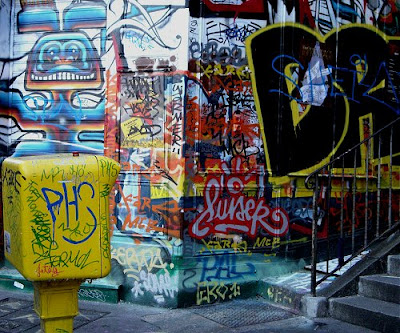Is concert programming too monochrome?

My pre-concert talk with conductor David Hill before last Sunday's scintillating Britten Sinfonia Messiah wandered off down a diverting overgrown path. In response to one of my questions David recounted how he recently conducted a concert in Liverpool with the following programme:
Elgar - Wand of Youth Suite No. 2At first this programme, which David Hill described as "one wedding and a funeral", seems bizarre. But is it? Dwindling and ageing audiences suggest classical musical took a wrong turning somewhere down the line. Now spend a few minutes browsing the programmes for the 1896 season of Henry Wood Proms on the invaluable Proms archive. Look at the sheer variety of music in each concert and contrast it with today's austere diet of single Mahler symphonies. Is contemporary concert programming too monochrome and is that one of the reasons why classical music is failing to attract a wider audience?
Coleridge-Taylor - The Song of Hiawatha, Hiawatha's Wedding Feast
Fauré - Requiem
Header photo was taken in Montmartre Paris and is (c) On An Overgrown Path 2011. Report broken links, missing images and errors to - overgrownpath at hotmail dot co dot uk Also on Facebook and Twitter.








Comments
"Walker – better known today for his superb three-volume biography of Liszt – argues compellingly that music criticism should be placed on an objective basis, not via the old-fashioned route of coming up with rules for how music supposedly works, but by beginning with our collective ability to identify with some pieces more than others, and explicating our perceptions of why the music elicits our sympathies so strongly."
If this path were taken it might give us newer and better tools for evaluating music. As a music therapist I'm always telling people it does not matter what others think of a particular piece. What's important is whether or not it engages you as an individual.
My sense is that Kyle's phrase "collective ability" has to be understood as a Venn diagram of a whole bunch of collectives, from dedicated specialists to what the previous commenter refers to as "punters".
The only hard data I have access to other than via press releases is the RAJAR data for classical radio stations. The last quarter data shows that year on year BBC Radio 3 lost 4.3% of its audience and Classic FM lost 5.1%. Which is definitely a dwindling audience.
But that is radio, not live music, although Radio 3 does, of course, include many live concert relays. As you say - give us the figures! Can any readers provide audience data for live classical music attendances that is not gleaned from spin-centric as press releases?
I rarely listen to classical music stations unless I'm stuck in a car with no better options. The available alternatives for non live music are so much better
- on demand streaming from websites or services like Spotify
- personal portable libraries
I learn about new music from blogs and specialist radio shows/podcasts, not through generic radio programming.
I get to live concerts according to availability, cost and interest. Audiences are potentially so much more educated now and have had greater exposure to an enormous repertoire than in previous generations, and demand more of the live experience. Frankly as the audience who rely exclusively on concert subscriptions ages, the prospect of listening to them coughing and wheezing through an expensive event is less and less appealing.
Just going to another concert and hearing yet another dull Mozart string serenade as filler to whatever warhorse concerto and symphony it's been paired with simply kills my interest. On the other hand going to an event with a beautifully curated program from L'Arpeggiata or the Australian Chamber Orchestra will entice me even if I know little of the material.
I've also gone to too many piano recitals that are the academic version of meat and three vegetables. I gave up one subscription series after hearing the Schumann Carnaval 5 times in 2-3 years. Most piano recital programs draw on less than 5% of the most stupendous repertoire for an instrument that has ever existed.
http://www.overgrownpath.com/2012/02/audience-data-explodes-entertainment.html